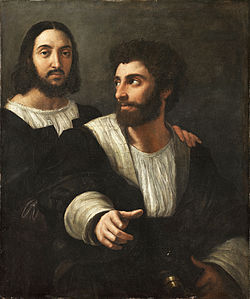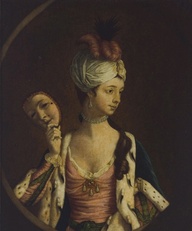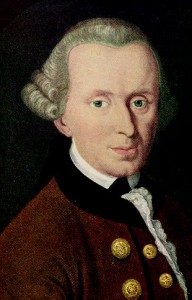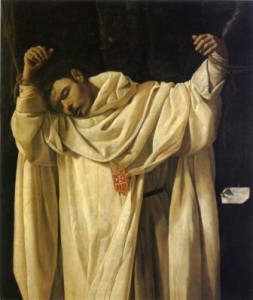Pagine
Condividi e segnala
Tag
- Althusser
- Antropologia
- Baumgarten
- Bourdieu
- Conceivability of Nothingness
- Conciliation
- corpo
- Derrida
- Dialectics
- Difference
- distinzione
- Europe
- Expression
- giudizio
- Grace
- Habitus
- Heidegger
- Hobbes
- Kant
- linguaggio
- Lyotard
- marxismo
- Medieval Aristotelianism
- Metaphysics
- Nature
- Negative
- Nichts
- nihil
- Nihilism
- nihil negativum
- nihil privativum
- Non-identical
- Nothing
- Nothingness
- onore
- politica
- postmoderno
- pratica
- riconoscimento
- Smith
- solitudine
- Sovranità
- Spinoza
- Thomas Aquinas
- Western Ontology
-
Articoli recenti
Link
Archivi categoria: Storia delle idee
Le désir de se revancher. Descartes et la reconnaissance.
Philippe Drieux
 ABSTRACT: The 193rd article of Descartes’ treatise Passions of the Soul is entitled “De la Reconnaissance” and it describes a passion whose nature has nothing to do with Hegel’s famous concept Anerkennung. This article deals much more with the gratefulness and love someone may feel for his/her benefactor than with what happens when two persons recognize each other’s status or value. There might be no link between the former feelings and the way someone can prove his/her own value and existence to other people. In this sense, “reconnaissance” is the exact opposite of ingratitude – one of the … Continua a leggere
ABSTRACT: The 193rd article of Descartes’ treatise Passions of the Soul is entitled “De la Reconnaissance” and it describes a passion whose nature has nothing to do with Hegel’s famous concept Anerkennung. This article deals much more with the gratefulness and love someone may feel for his/her benefactor than with what happens when two persons recognize each other’s status or value. There might be no link between the former feelings and the way someone can prove his/her own value and existence to other people. In this sense, “reconnaissance” is the exact opposite of ingratitude – one of the … Continua a leggere
Pubblicato in Storia delle idee
Lascia un commento
Morte o rinascita degli esercizi spirituali? Le Meditationes di Descartes nel dibattito tra Derrida/Foucault e Foucault/Hadot
Massimiliano Biscuso
Abstract: Michel Foucault and Pierre Hadot maintained that Descartes, in his Meditationes de prima philosophia, followed the ancient tradition of spiritual exercises. In this paper I will examine Foucault’s and Hadot’s theses, analyzing both the relation between Cartesian evidence and the Stoic conception of cataleptic representation, as well as the one between the Cartesian and Augustinian overcoming of doubt. In my opinion, the French philosopher changes the spiritual exercises of the ancient philosophers into a literary genre.
Pubblicato in Storia delle idee
Lascia un commento
L’amicizia tra gelosia e gratitudine. Riconoscimento e virtù nell’«Etica» di B. Spinoza.
Francesco Toto
 Abstract: Drawing on Baruch Spinoza’s analyses of jealousy and gratitude this article demonstrates the importance of friendship in his Ethics. Friendship is shown to be crucial both for those driven by reason and for those dominated by emotions. This article also shows the significance of the desire for recognition in the genesis of friendship itself. My emphasis on the notion of friendship addresses a gap in Spinozian studies and it produces a new reading of the problem of continuity/discontinuity between passion and virtue. Through this analysis the possibility of an affective agreement among men emerges … Continua a leggere
Abstract: Drawing on Baruch Spinoza’s analyses of jealousy and gratitude this article demonstrates the importance of friendship in his Ethics. Friendship is shown to be crucial both for those driven by reason and for those dominated by emotions. This article also shows the significance of the desire for recognition in the genesis of friendship itself. My emphasis on the notion of friendship addresses a gap in Spinozian studies and it produces a new reading of the problem of continuity/discontinuity between passion and virtue. Through this analysis the possibility of an affective agreement among men emerges … Continua a leggere
Pubblicato in Storia delle idee
Lascia un commento
La reconnaissance chez Hutcheson.
Laetitia De Rohan Chabot
 Abstract: In his early philosophy, Hutcheson essentially wonders about the principles of our moral approbation, thereby putting a theory of acknowledgement at the center of his philosophy. Acknowledgement seems to be both epistemic and emotional, insofar as it refers to the spectator’s capacity to identify virtue in the agent and to approve it without the help of any previous rational knowledge. Nevertheless, Hutcheson’s thinking gets more complicated when in the Inquiry into the original of our ideas of beauty and virtue, section III, he comes to consider the action’s potential effects, which the moral sense cannot … Continua a leggere
Abstract: In his early philosophy, Hutcheson essentially wonders about the principles of our moral approbation, thereby putting a theory of acknowledgement at the center of his philosophy. Acknowledgement seems to be both epistemic and emotional, insofar as it refers to the spectator’s capacity to identify virtue in the agent and to approve it without the help of any previous rational knowledge. Nevertheless, Hutcheson’s thinking gets more complicated when in the Inquiry into the original of our ideas of beauty and virtue, section III, he comes to consider the action’s potential effects, which the moral sense cannot … Continua a leggere
Pubblicato in Storia delle idee
Lascia un commento
I filosofi e il duello: dallo ‘Spirito delle leggi’ alla ‘Enciclopedia’.
Luigi Delia
Abstract: Between Montesquieu and Beccaria, the Diderot and D’Alembert Encyclopédie system proves to be a privileged site through which it is possible to remap both the judicial and socio-political stakes of the duel. What kind of logic presides over the ancient jurisprudence of judicial combat? Is God’s judgement a criterion for truth? Must we punish with infamy those gentlemen who (have) confronted each other in the name of aristocratic honor, self-esteem and notoriety?… Continua a leggere
Pubblicato in Storia delle idee
Lascia un commento
La lezione kantiana sulla “Psychologie”
Elisabetta Mainenti
 ABSTRACT. It is widely recognized that Leibniz’s basic understanding of the mind (as a combination of consciousness and unconsciousness) gave birth to a tradition destined to affect the entire evolution of German psychology until Freud. The proposal of the possible existence of unconscious mental processes was in complete contradiction with the dominant perspective. However, following Kant’s suggestions about the articulated and complex architecture of the soul contained in his Lectures on Psychology, it can be argued that, paradoxically, it is precisely the ‘Eponymous hero’ of the ‘Enlightened Era’ that gives us a … Continua a leggere
ABSTRACT. It is widely recognized that Leibniz’s basic understanding of the mind (as a combination of consciousness and unconsciousness) gave birth to a tradition destined to affect the entire evolution of German psychology until Freud. The proposal of the possible existence of unconscious mental processes was in complete contradiction with the dominant perspective. However, following Kant’s suggestions about the articulated and complex architecture of the soul contained in his Lectures on Psychology, it can be argued that, paradoxically, it is precisely the ‘Eponymous hero’ of the ‘Enlightened Era’ that gives us a … Continua a leggere
Pubblicato in Storia delle idee
Lascia un commento
Percezione, rappresentazione e memoria nella filosofia di Bergson
Fabiola Di Fazio
- Introduzione.
La gnoseologia bergsoniana mostra il valore, i limiti e la natura pragmatica dell’intelligenza, senza confinarla entro le sue forme. Bergson le apre prospettive diverse.
La teoria della conoscenza elaborata dal filosofo francese segue le orme delle filosofia kantiana, ma procede oltre Kant: l’intelligenza è fenomenica e intuitiva, non è limitata alle sue forme a priori e può cogliere la dinamicità del reale. Il metodo intuitivo concesso all’intelligenza, oltre all’analisi, rende il bergsonismo un empirismo radicale.
La teoria bergsoniana implica tre nodi concettuali fondamentali: in primo luogo, la teoria della percezione e della memoria, così come … Continua a leggere
Pubblicato in Storia delle idee
Lascia un commento



